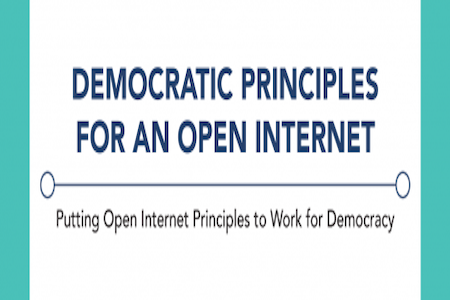
To promote a deeper understanding of internet governance and digital rights by local communities in the Philippines, Womenpowered Digital and ICT Davao partnered with the Foundation for Media Alternatives and Internet Society to host an Internet Governance Symposium.
To promote a deeper understanding of internet governance and digital rights by local communities in the Philippines, Womenpowered Digital and ICT Davao partnered with theFoundation for Media Alternatives and Internet Society to host an Internet Governance Symposium. The Symposium was conducted in Davao City, Philippines on October 23, 2018.
The Internet Governance Symposium aimed "to highlight emerging public policy issues relating to internet governance and digital rights and to facilitate multistakeholder dialogue to develop recommendations to relevant government officials or technology companies on how the internet should be governed".
During the event, I had the privilege to highlight the Democratic Principles for an Open Internet and address how the principles could be applied towards the startup community in the Philippines, as an open internet is essential to fostering innovation.
The three Democratic Principles for an Open Internet (the Principles) that resonated the most with the startup community that attended the session was accessibility, data privacy and protection, and inclusion.
Accessibility
The Principles explain that in a democracy, "all members of society have an equal right to learn about, access, and use the internet". Without access to the internet, entrepreneurs are unable to participate in the digital economy, including participating in e-commerce and using electronic transactions (e-payments and e-signatures). Accessibility to the internet is often an issue in remote areas of the Philippines, preventing citizens from participating in economic, political, cultural, and social activities.
Data Privacy and Protection
Startups and the technology community play a major role in data privacy and protection. As providers, startups and technology companies are obligated to have a system and mechanisms in place to protect and secure the data they collect and process. It is also vital to ensure that the way personal data is collected, stored, and shared is compliant with the Data Privacy Law of the Philippines and the General Data Protection Regulation (GDPR), if this information contains personal data from a citizens and residents of the European Union.
Beyond data privacy and protection through an operational perspective, it is crucial that all citizens have access to a secure and safe internet. Therefore, civil society organizations and tech startups alike should continue to push back against heavy surveillance.
Inclusion
The Principles also describe that "the internet [should] be designed and maintained in a way that promotes inclusion of all peoples, such as women, persons with disabilities, and other marginalized populations". The startup community should promote cultural and linguistic diversity, contributing to plurality of expression.
In addition to advancing innovation and participating in online commerce, the tech startup community should join civil society organizations and digital rights coalitions to ensure that the internet remains inclusive, secure, and open.
- Log in to post comments
